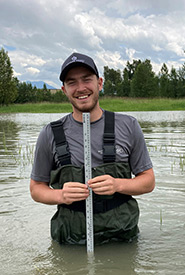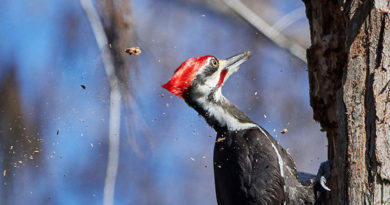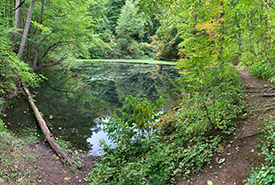NCC: Land Lines – Embracing small acts of conservation: A guide to help nature with the Nature Conservancy of Canada
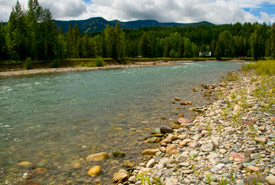
Flathead River, BC (Photo by NCC)
Nature is a source of wonder and inspiration for people around the world. For me, it’s been a source of happiness since I was a young child, spending free time outside in nature has always been my thing! Its beauty and biodiversity are essential for our well-being and the health of the planet. As someone who has dedicated years to studying environmental studies, I’ve had the privilege of delving deep into the intricate relationships between human actions and the environment. Through my academic journey, I’ve witnessed firsthand the power of personal actions and collective involvement in helping nature thrive.
As nature enthusiasts, we have a responsibility to protect and conserve our natural world. The Nature Conservancy of Canada (NCC) offers a fantastic opportunity for people from coast to coast to do just that through their Small Acts of Conservation challenge. By participating, you not only contribute to the protection of wildlife and their habitats but also stand a chance to win an NCC Prize Pack. Let’s explore three key ways nature enthusiasts can volunteer alongside NCC and make a difference through small acts of conservation.
1. Walk with water
In this challenge, you can start by installing rain barrels in your yard. This simple act has a big impact on your local watershed, and redirecting rain water into your gardens reduces runoff and benefits wildlife by providing increased ecosystem services. Additionally, you can consider using porous surfaces like gravel or permeable pavers for walkways, patios and driveways to further reduce runoff. Choose plants native to your area, as these support more wildlife and can require less care than ornamental and non-native species.
2. Meet Your nature neighbours
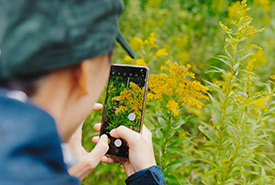
Photographing nature and sharing observations on iNaturalist can be a great way to contribute to community science (Photo by Brianna Roye)
Embark on an exciting journey into the rich nature of your region. The first step is to use the iNaturalist.ca website or app to document the plants and animals in your yard or nearby natural areas. This immersive experience lets you actively engage with the web of life around you. Your observations deepen your understanding of local wildlife and strengthen your connection to nature. Use iNaturalist to identify and flag invasive plants in your yard, allowing you to take a proactive conservation step. Consult NCC’s native species gardening guide to replace invasive plants with native ones, providing welcome habitat for local wildlife.
3. Soak it all in
Explore your local wetlands, uncovering their vital role in water storage and filtration, community well-being and wildlife support. Take a riverside adventure, learning about the river’s origins and its impact on ecosystems. Enhance your knowledge with the iNaturalist app or website, documenting plants and animals in wetlands, rivers and lakes. This resource brings you closer to nature and empowers you to be an environmental steward.
The Nature Conservancy of Canada’s Small Acts of Conservation challenge offers a remarkable opportunity for nature enthusiasts to make a tangible impact on our environment. By participating in these challenges, you contribute to the well-being of wildlife and their habitats while fostering a stronger connection with nature. Together, we can safeguard the extraordinary beauty and biodiversity that define Canada’s landscapes. Join the movement and share your commitment to conserving nature through #MySmallAct.


